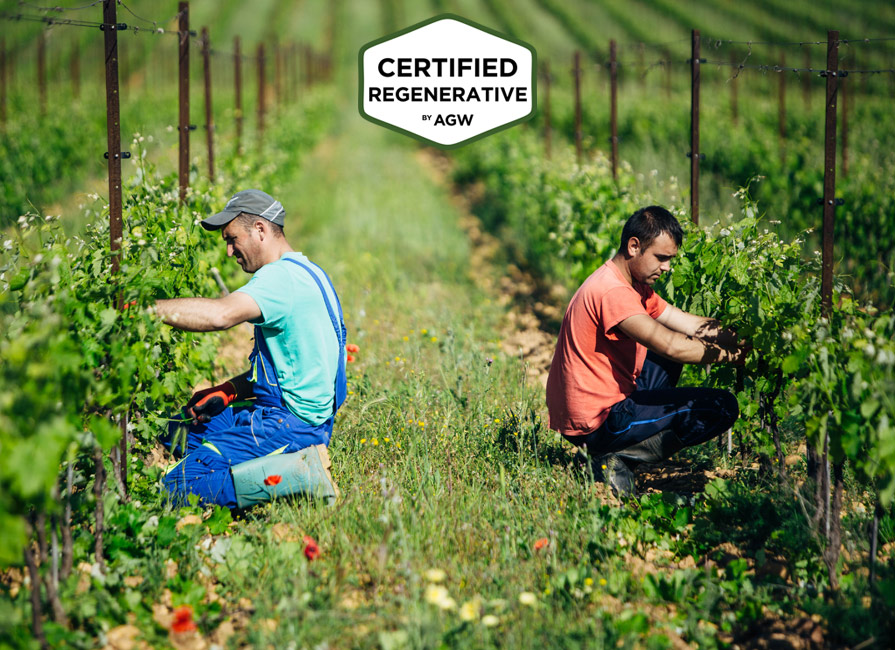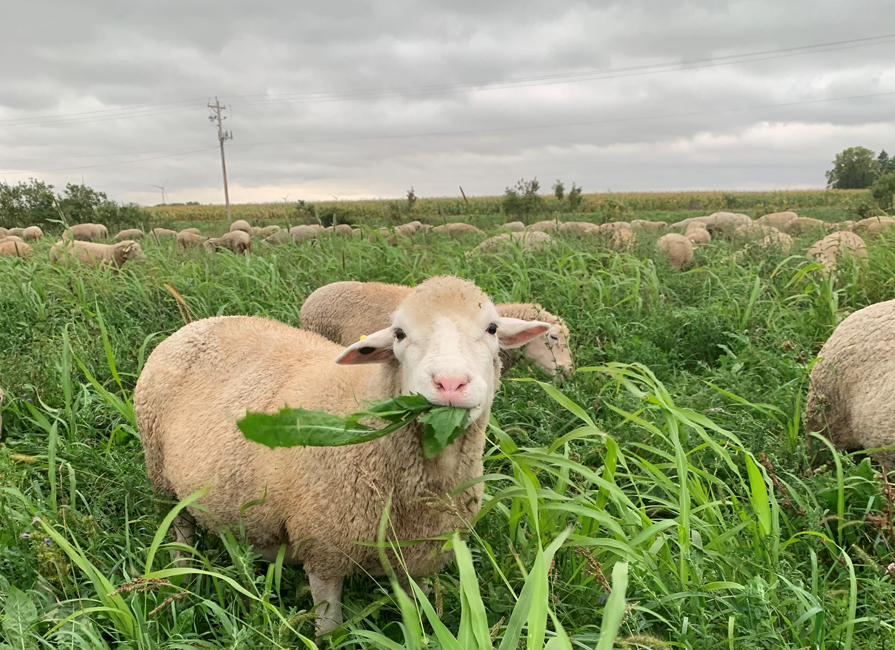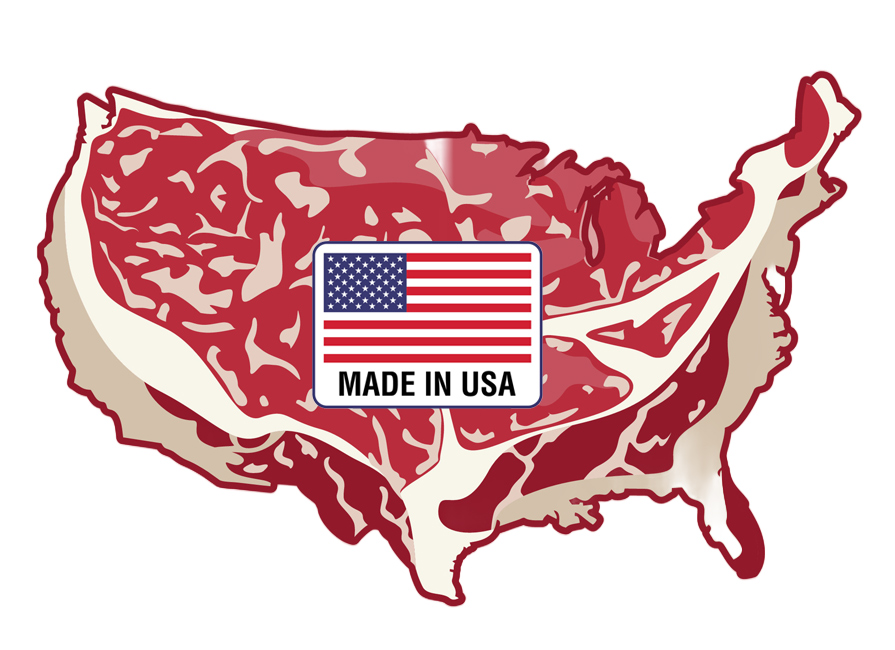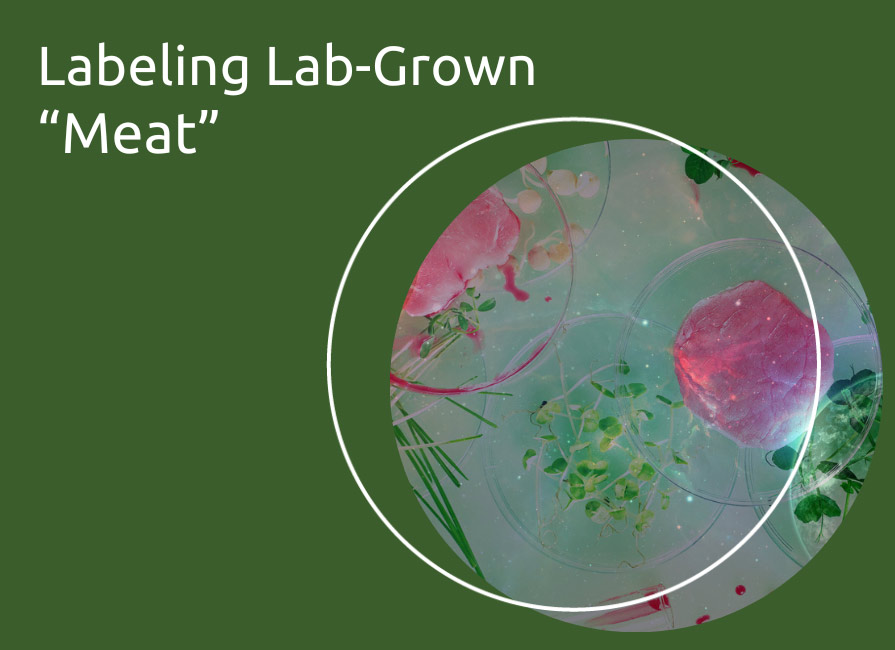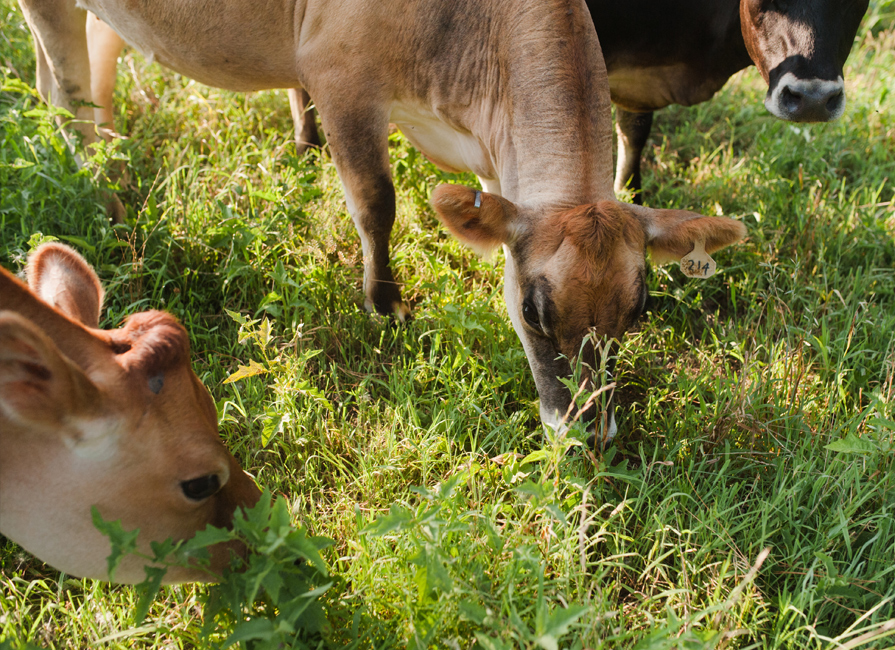Famille Gassier – Costières de Nîmes, Caissargues, France
Famille Gassier is one of the premier vineyards the southern Rhône Valley in the south of France. Situated near Costières de Nîmes, the two estates—Château de Nages in the north of the appellation and Domaine Gassier, overlooking the Camargue—are the first Certified Regenerative by AGW vineyards in France. The 346-acre of regeneratively-managed vineyards produce a range of award-winning, handcrafted wines sold in North America and Europe that reflect the Rhône identity. The family’s goal is to achieve vineyard resilience and…
Meet The Farmer – Jump For Jóia
Wendy Johnson and Johnny Rafkin own Jóia Food Farm near Charles City in northeast Iowa, raising Certified AWA and Certified Grassfed by AGW sheep and selling directly to consumers through the farm and through their wool bedding business, Counting Sheep Sleep Company. What do you farm? Currently we steward 135 acres of perennial forage, trees and shrubs by addition, and Kernza - a perennial wheatgrass for grain and forage. We are regenerating this land from over 100 years of…
Made In The USA
In today's increasingly food-conscious world, consumers expect a label to mean what it says—including the country of origin of the food they purchase. However, the reality is that "Product of USA" and "Made in the USA" claims used on many food products are highly problematic. It might surprise you to know that the Food Safety Inspection Service (FSIS) of the United States Department of Agriculture’s (USDA) rules currently allow products to be voluntarily labeled “Product of USA” if the animal…
Labeling Lab-Grown “Meat”
In recent months, we've observed a surge in search queries on our website concerning lab-grown “meat”, specifically the question, "Will lab-grown meat be labeled?" It's encouraging to see consumers turning to A Greener World to navigate this complex issue, and it’s understandable that there are concerns surrounding the way in which these products will be identifiable to shoppers. The USDA recently approved two companies to label lab-grown “chicken” as “cell-cultivated,” which sounds like a win for transparency until you consider…
Hunger Games
Research shows that feeding ruminants small quantities of grain is not usually harmful. If they are fed large quantities of grain, however, ruminants can suffer from serious diet- and digestion-related problems such as acidosis (a serious form of bovine heart burn that can lead to diarrhea, ulcers, liver disease and general ill health). Besides being detrimental to animal welfare, feeding grain also raises concerns about livestock competing directly with humans for food sources. On this basis, A Greener World advocates…

